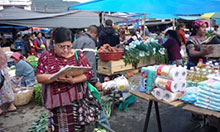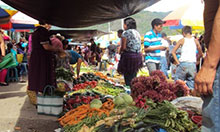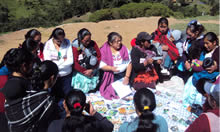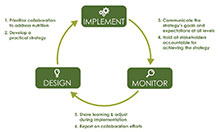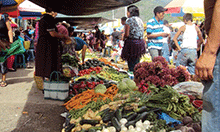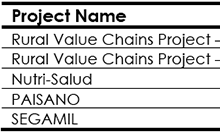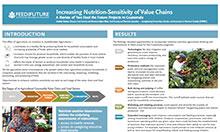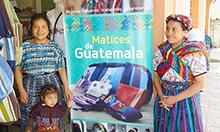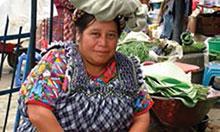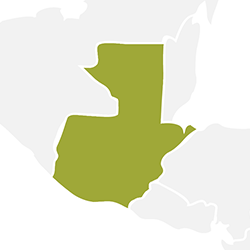 SPRING’s work in Guatemala supported the Guatemala USAID Mission’s Feed the Future strategy. Our partnership focused on increasing agricultural productivity, advancing economic growth, improving access to more nutritious foods, and increasing the use of essential nutrition interventions among poor communities in the Western Highlands. The work can be broken into three work streams.
SPRING’s work in Guatemala supported the Guatemala USAID Mission’s Feed the Future strategy. Our partnership focused on increasing agricultural productivity, advancing economic growth, improving access to more nutritious foods, and increasing the use of essential nutrition interventions among poor communities in the Western Highlands. The work can be broken into three work streams.
The first stream dealt with supporting USAID/Guatemala’s Western Highlands Integrated Program (WHIP) strategy. USAID/Guatemala designed WHIP in 2011 to “institutionalize” multisectoral integration through stakeholder collaboration at all levels; however, given the complexities involved with supporting integration, USAID/Guatemala was also keen to continue to learn from and improve upon the WHIP approach. SPRING worked with USAID/Guatemala to identify how WHIP activities collaborate and how interventions overlap within and across technical sectors. We identified and documented synergies and areas for improvement and provided recommendations for how to define and strengthen the WHIP mechanism in the short, medium, and long term.
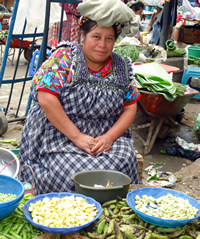
For our second work stream, SPRING carried out formative research in August 2014 across the Feed the Future zone of influence to better understand the household, gender, and community norms, knowledge, capacities, and environmental factors that influence people’s decisions about what foods they buy, what they grow, and what they consume. This formative research helped identify and prioritize influencers affecting purchase, production, and consumption decisions, including the seasonal food market environment.
SPRING also provided technical assistance to support nutrition-sensitive design, implementation, and measurement in Feed the Future’s Rural Value Chains Project (RVCP) in Guatemala as our final work stream. Working with implementers, SPRING identified points along and within several food and non-food value chains that provide opportunities for addressing the underlying causes of undernutrition and, with RVCP staff, developed recommendations for adjustments in interventions to support and measure greater nutrition sensitivity. Although there is still some ambiguity about the ways value chain activities should be expected to contribute to nutrition outcomes, our detailed findings facilitate further discussions and describe possible leverage points for making value chains more nutrition-sensitive.
